We also welcomed the Commission's resolutions oninternet freedomand the need todevelopguidelines on policing and assemblies.These resolutions represent positive steps towards addressing restrictions on fundamental freedoms on the continent. However, their impact remains dependent on governments' cooperation.
In Ethiopia, where protests began one year ago in the Oromia region, there has been no international, independent, and impartial investigation into allegations of excessive and lethal use of force by security forces. Since November 2015, protests have taken place across several regions of the country and rights groups report that security forces
have
killed
at least 800 demonstrators and arrested tens of thousands. Civil liberties have become
increasingly
restricted
under a recently imposed state of emergency and mobile internet services only resumed on 2 December after being suspended for two months.
Although the ACHPR took steps to address two of the most pressing crises in the East and Horn of Africa, we must continue to demand action and accountability for other critical and protracted human rights crises that risk being forgotten. Over the past month, security forces in Sudan
have
cracked
down
on activists following public disobedience activities including strikes and protests against the government’s decision to raise the price of fuel, medicine, and electricity.
Doctors, journalists, and protesters have faced continued violations of their right to peacefully assemble and express themselves, including
through
arbitrary arrest and
detention
and charges of disruption of public peace and public nuisance. Most recently, during three days of civil disobedience observed between 27 and 29 November, over twenty
activists
were arrested, the print runs of four newspapers were confiscated, andOmdurman TVwas ordered
to
shut
off
its transmission. Meanwhile, ten human rights defenders (HRDs) associated with the
Karthoum-based TRACKs for Training and Human Development are still on trial for their work, with
little
evidence
that the proceedings meet international and regional human rights standards.
As we prepare to celebrate the work of activists worldwide on International Human Right Defenders Day on 9 December, the need for recognition of the systemic and multi-faceted challenges facing human rights defenders has never been greater. While regional human rights mechanisms, such as the ACHPR, offer a welcome opportunity to shine
light on these worsening human rights crises, they remain dependent on the cooperation and political will of governments to implement their recommendations and resolutions. Yet in the sub-region governments continue to flout their regional and international obligations and allow a culture of impunity to prevail. Until this changes, DefendDefenders will continue to support and protect HRDs under threat, and raise their voices at every opportunity we get.
Yours in solidarity,
Hassan Shire
Executive Director |
|
|
|
|
|
|
Murder in Burundi: the man who knew too much
In a compelling long-read, the Guardian explores the brutal murder of three nuns, the complicated relationship between a prominent HRD and a powerful general, and the rising tensions between
government and civil society in Burundi.
|
|
|
The Butterfly Effect: Spreading Good Practices of UPR Implementation
UPRInfo's newest study provides a robust assessment of the Universal Periodic Review’s ability to deliver on its promise: to strengthen human rights at the domestic level.
|
|
|
|
|
|
|
Updates from the sub-region
Burundi
- The International Criminal Court (ICC)
announced
that it will continue its preliminary inquiry into alleged crimes committed in Burundi, despite Burundi’s withdrawal from the Rome Statute;
- On 22 November, the President of the UN Human Rights
Council
announced
the appointment of the three experts who will serve on the newly mandated Commission of Inquiry on Burundi. The members will provide their first oral update to the Council during its 34th session in March 2017 and present their final findings in September 2017;
- On 29 November,Radio Publique
Africaine
journalist and HRD Nestor Ndayitwayeko passed away in a hospital in Kigali. He worked in Burundi until August this
year, and fled the country after being severely beaten by a policeman in the Rutana province of Burundi in July 2016.
Ethiopia
- On 11 November Befeqadu Hailu,
co-founder and prominent member of the Zone 9 blogger collective,
was
arrested
at his home and taken to a local police station before being transferred to
Kotebe police station the next day. Although authorities have not officially disclosed the reason for his detention, friends of Befeqadu told the Committee to Protect Journalists they believed the arrest may have been related to an interview he gave to Voice of America’s Amharic service on Ethiopia’s state of emergency;
- On 15 November, Getachew Worku, the editor of weekly newspaperEthio-
Mihidar,was
charged
with "defamation and spreading false information"
and
sentenced
to one year in prison.The charges were reportedly brought after he published an article on alleged corruption involving a senior member of the clergy of the Orthodox Church.
Kenya
- On 10 November, a group of UN human rights
experts
condemned
the crackdown by Nairobi police on
peaceful
protests
on 3 November against alleged government corruption and urged authorities to investigate claims of excessive use of force and arbitrary arrests against
protestors and journalists;
- Ten HRDs working on land issues have been held at Taveta GK prison since 1 November after they
were
arrested
at a public meeting and charged with participation in an unlawful assembly. Although bond has been set, all HRDs remain in custody as they are
unable pay the required KES 300,000 (approx. 2,770 euros);
- During a panel discussion on the government’s responsibility to protect HRDs at the ICC, Jasper Mbiuki, a senior adviser to President Uruhu Kenyatta,
threatened
prominent Kenyan activist Gladwell Otieno after she raised the issue of intimidation of civil society.
Mbiuki reportedly demanded that Otieno
apologise and warned, "she chose to take that route, so be prepared to take the consequences.”
South Sudan
- A coalition of South Sudanese and international civil society
organisations
called
on the African Union Commission to prepare a draft statute for the Hybrid Court – part of the 2015 Peace Agreement – and immediately put in place mechanisms to preserve evidence of human rights violations until the Court is established;
- On 11 November, Juba-based Eye Radio
was
shut
down
by security officials after airing a pre-recorded audio clip of former Vice-President and opposition leader Riek Machar.
Sudan
- At least 11 doctors
were
held
incommunicado
without charge for nearly three weeks by the National Intelligence and Security Service (NISS) for participating in
a
strike
organised
by the Sudanese Doctors’ Central Committee that began on 6 October;
- On 6 November, a journalist withAl-
Saiha, Mohamed Abu Zaid, was detained for covering anti-austerity protests. Four days later two other journalists, Mohamed Al-Amin Abdel-Aziz and Amal Habani,
were
detained and
beaten
by members of the NISS.
Habani reported that she was detained after leaving the on-going trial against HRDs associated with TRACKS for Training and Human Development;
- Public protests against the austerity measures intensified in mid-November and over 17 protesters arrested on 20 November have
been
charged
with disturbing public peace and public nuisance;
- During three days of civil disobedience from 27 to 29 November, over 20 activists
were
arrested
and various media houses were targeted for covering the strike. The NISSconfiscatedthe print runs of four newspapers and on 29 November the General Authority for Radio and Television Broadcasting orderedOmdurman TVtoshut
off
its transmission.
Uganda
- On 9 November, Sexual Minorities Uganda (SMUG)
argued
in a U.S. court that a federal lawsuit against American Pastor Scott Lively, alleging that
he
participated
in efforts to revoke fundamental rights from LGTBI people in Uganda, must proceed to trial. The judge’s ruling on whether or not the case will move forward is not time-bound and could take up to a year;
- On 11 November,
police
fired
teargas into the home of Christopher Kisembo, an HRD working on environmental issues in Kabarole, after he
organised
a peaceful community protests on land and water rights;
- Also on 11 November, the Constitutional Court in Ugandastruckdown section 15(6)(d) of the Equal Opportunities Commission Act, under which the Commission was barred from investigating "any matter involving behaviour which is considered to be immoral and socially harmful, or unacceptable by the majority of the cultural and social communities in Uganda”;
- On 27 November, Kenya Television Network reporter Joy Doreen Biira
was
arrested and detained
overnight
in Kasese after reporting on violent clashes between the Uganda People’s Defence Force and
a royal guards of the Rwenzururu kingdom,
that
reportedly left over 87 people dead, with a police spokesperson saying she "crossed the line.” She has since been charged with abating terrorism.
|
|
|
|




 0
0 
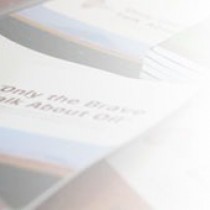




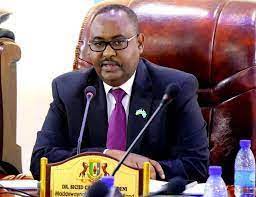
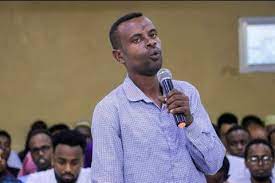
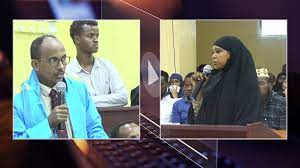

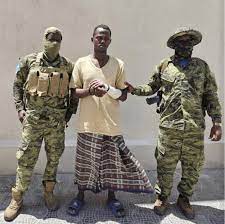


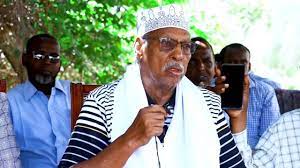
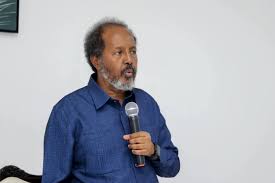
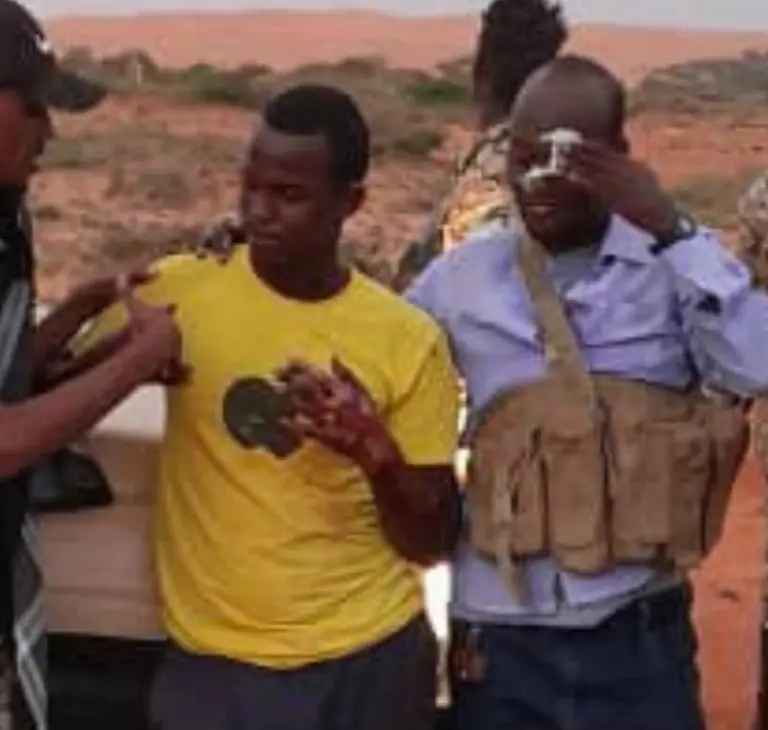
Dear friends and colleagues,November saw the African Commission on Human and Peoples' Rights (ACHPR)convenefor its 59th session and take decisive action on two of the most pervasive human rights crises in the sub-region –BurundiandEthiopia.
We also welcomed the Commission's resolutions oninternet freedomand the need todevelopguidelines on policing and assemblies.These resolutions represent positive steps towards addressing restrictions on fundamental freedoms on the continent. Howe